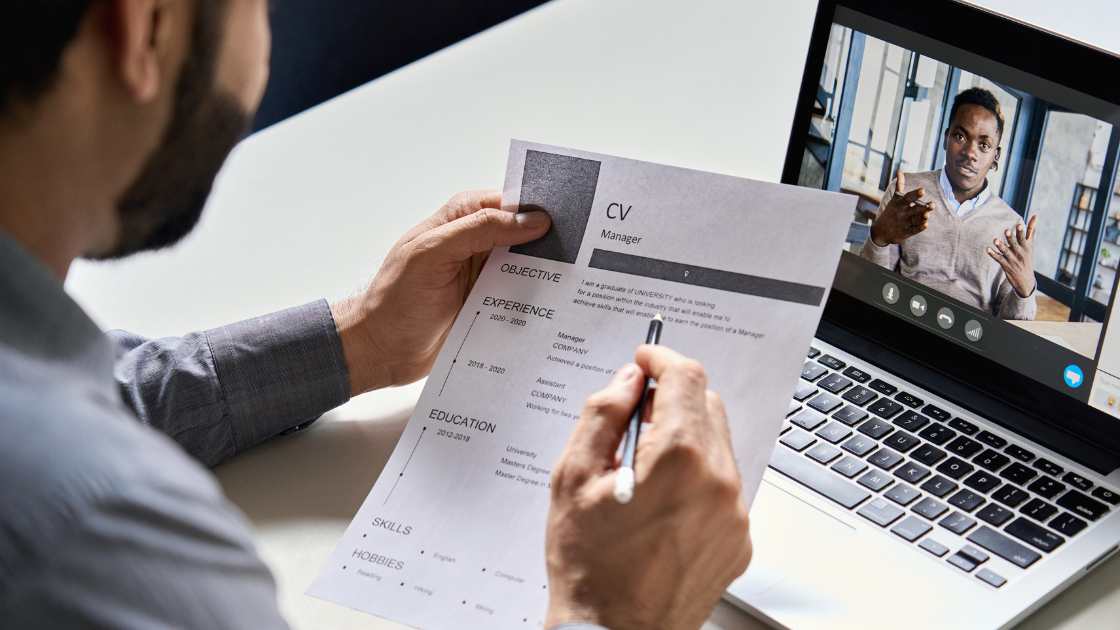Preparing for a big job interview can be a nerve-wracking experience, but with the right strategy, you can set yourself up for success. Employers look for candidates who are not only qualified but also confident and well-prepared. Here’s a comprehensive guide on how to prepare for a big job interview.
Guides
Research the Company
One of the most important steps in interview preparation is researching the company. Understanding the company’s mission, values, products, and services allows you to tailor your responses to align with its goals.
Key Steps to Research the Company:
Visit the company’s official website and read the “About Us” page.
Check out recent news articles, press releases, and announcements.
Look up employee reviews on platforms like Glassdoor.
Follow the company on social media to stay updated on its activities and culture.
Knowing this information shows the interviewer that you are genuinely interested in the role and have taken the time to prepare.
Understand the Job Role
Review the job description thoroughly to understand the key responsibilities and required skills. Highlight the specific qualifications mentioned and reflect on how your experience and strengths align with them.
How to Understand the Role:
Identify the main responsibilities listed in the job description.
Pinpoint key skills and attributes required for the role.
Match your experience, accomplishments, and skills to the requirements of the job.
By doing this, you’ll be able to prepare targeted responses for questions related to the position.
Practice Common Interview Questions
Practicing interview questions is a crucial part of preparation. While you can’t predict every question, certain common interview questions often arise.
Examples of Common Questions:
“Tell me about yourself.”
“What are your strengths and weaknesses?”
“Why do you want to work for our company?”
“Describe a time when you faced a challenge and how you overcame it.”
Tips for Practicing Questions:
Use the STAR method (Situation, Task, Action, Result) to structure your answers.
Record yourself while practicing to identify areas for improvement.
Practice with a friend, mentor, or career coach to get feedback.
Dress Professionally
Your appearance plays a crucial role in making a strong first impression. Dressing appropriately for the role shows professionalism and respect for the opportunity.
How to Dress for Success:
Research the company’s dress code to determine the appropriate attire.
Opt for classic, well-fitting professional clothing.
Ensure your clothes are clean, wrinkle-free, and polished.
If you’re unsure, it’s better to overdress than underdress.
Prepare Your Documents
Bring along any necessary documents that you may need during the interview. These materials help you look organized and well-prepared.
Documents to Bring:
Printed copies of your resume (at least 3-5 copies).
A list of references with their contact information.
Work samples or a portfolio, if relevant to the role.
A notebook and pen for taking notes.
Organize these materials in a professional-looking folder or portfolio.
Plan Your Logistics
Arriving late to an interview creates a negative first impression. Plan your logistics to ensure you arrive on time, relaxed, and ready to go.
How to Plan Your Logistics:
Confirm the interview time, date, and location (in-person or virtual).
Plan your route and consider potential traffic or delays.
For virtual interviews, check your internet connection, webcam, and microphone in advance.
Aim to arrive 10-15 minutes early to show punctuality and preparedness.
Practice Body Language and Communication
Your non-verbal communication speaks volumes during an interview. Positive body language can make you appear confident and engaged.
Body Language Tips:
Maintain eye contact with the interviewer.
Offer a firm handshake if meeting in person.
Sit up straight, avoid crossing your arms, and lean in slightly to show interest.
Smile naturally and nod to acknowledge the interviewer’s points.
Positive body language complements your verbal responses and leaves a lasting impression.
Prepare Questions for the Interviewer
Toward the end of the interview, the interviewer will often ask if you have any questions. Use this opportunity to demonstrate your interest in the role.
Smart Questions to Ask:
“What does success look like in this position?”
“Can you describe the team I’d be working with?”
“What are the company’s goals for the next year?”
Avoid asking about salary, benefits, or time off during the first interview unless prompted.
Follow Up After the Interview
Sending a thank-you email after the interview shows gratitude and reinforces your interest in the role.
How to Write a Follow-Up Email:
Send the email within 24 hours of the interview.
Thank the interviewer for their time and mention a key highlight of the conversation.
Reiterate your interest in the position and express excitement about the opportunity.
Example:
Subject: Thank You for the Interview – [Your Name]
Dear [Interviewer’s Name],
Thank you for taking the time to interview me for the [Job Title] position at [Company Name]. I enjoyed learning more about the team’s goals and the company’s vision for the future. Our discussion about [mention a specific topic discussed] resonated with me, and I am very excited about the opportunity to contribute to [mention a specific project, initiative, or goal].
Thank you again for your time and consideration. I look forward to the possibility of joining your team.
Best regards,
[Your Name]
[Your Contact Information]
Conclusion
Preparing for a big job interview requires effort and strategy, but the results are worth it. Research the company, practice your responses, dress appropriately, and follow up afterward. By following these steps, you’ll increase your confidence, stand out from other candidates, and position yourself for success.





